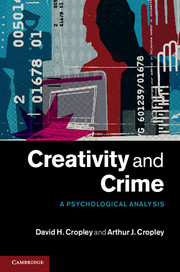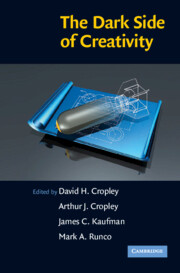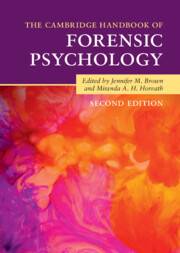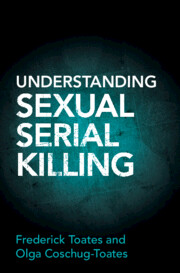Creativity and Crime
A Psychological Analysis
$47.99 USD
- Authors:
- David H. Cropley, University of South Australia
- Arthur J. Cropley, Universität Hamburg
- Date Published: July 2013
- availability: This ISBN is for an eBook version which is distributed on our behalf by a third party.
- format: Adobe eBook Reader
- isbn: 9781107273238
Find out more about Cambridge eBooks
$
47.99 USD
Adobe eBook Reader
Other available formats:
Paperback, Hardback
Looking for an inspection copy?
Please email [email protected] to enquire about an inspection copy of this book
-
Creativity is typically perceived to be a positive, constructive attribute and yet, highly effective, novel crimes are committed which illustrate that creativity can also be utilised to serve a darker and more destructive end. But how can these 'creative criminals' be stopped? Adopting a psychological approach, renowned subject experts Cropley and Cropley draw upon concepts such as 'Person,' 'Process', 'Press' and 'Product' to explain how existing psychological theories of creativity can be applied to a more subtle subset of ingenuity; that is to say criminal behaviour and its consequences. Creativity and Crime does not look at felony involving impulsive, reflexive or merely deviant behaviour, but rather the novel and resourceful measures employed by criminals to more effectively achieve their lawbreaking goals. The book transcends the link between crime and creativity, and proposes a range of preventative measures for law enforcers. Scholars and graduates alike will find this an invaluable and illuminating read.
Read more- Adopts an interdisciplinary approach to unite two typically disparate domains: creativity and crime which will appeal to academic researchers and graduates of forensic psychology, criminology, legal studies and law enforcement
- Explores how existing psychological theories of creativity can be applied to creative crime and proposes a series of preventative measures for law enforcers
- Provides a detailed, psychological analysis of crime as a negative and malevolent form of creativity which will be invaluable to creativity researchers wanting to expand their knowledge of the darker side of creativity
Reviews & endorsements
'The value of creativity is now recognized in numerous domains, fields of study, and professions. No wonder this broadening of interests and applications has led to the question of a relationship between creativity and crime. This volume explores that relationship in an objective, cogent, and readable manner. It accomplishes the difficult feat of sticking with the research and yet keeping the discussion broadly accessible. This volume therefore represents a huge step forward towards an understanding of the various ways in which crime and creativity might be related to one another.' Mark Runco, Editor, Creativity Research Journal
See more reviews'The study of the intersection of crime and creativity has needed a fresh approach for some time, and David and Arthur Cropley have filled this need in fine style. Their comprehensive analysis has a strong theoretical grounding and interdisciplinary perspective that set this book apart. This volume will be the standard treatment of this topic for years to come.' Jonathan Plucker, Indiana University
'To keep crime and terrorism under control in the medium-to-long term, crime preventers (whether in the police, local or national government or the design and manufacturer of products, systems and services) need the capacity to out-innovate adaptive offenders, and those lesser offenders who draw on the formers' tools and tactics. This means acquiring a thorough understanding and anticipation of criminal creativity, and a strong element of creativity themselves in designing solutions; and establishing a level of organisational support and legal infrastructure that makes the controlled exercise of that creativity feasible and socially acceptable. The well-researched and thought-through framework developed by David and Arthur Cropley and engagingly presented in this book, shows the way ahead. Professional preventers of crime and terrorism should now give these ideas a serious try.' Paul Ekblom, University of the Arts, London
'… this book is highly recommended. The authors take a very complicated and often counter-intuitive intersection of two distinct topics and guide the reader along a thought-provoking, informative, and fun discourse. Many readers will find that they are re-thinking their fundamental assumptions about crime and law enforcement.' James C. Kaufman and Cuiping Tu, Criminal Law and Criminal Justice Books (www.clcjbooks.rutgers.edu)
Customer reviews
17th Oct 2024 by UName-317088
Creativity is typically perceived to be a positive, constructive attribute and yet, highly effective, novel crimes are committed which illustrate that creativity can also be utilised to serve a darker and more destructive end. But how can these creative criminals be stopped? Adopting a psychological approach, renowned subject experts Cropley and Cropley draw upon concepts such as Person, Process, Press and Product to explain how existing psychological theories of creativity can be applied to a more subtle subset of ingenuity that is to say criminal behaviour and its consequences. Creativity and Crime does not look at felony involving impulsive, reflexive or merely deviant behaviour, but rather the novel and resourceful measures employed by criminals to more effectively achieve their lawbreaking goals. The book transcends the link between crime and creativity, and proposes a range of preventative measures for law enforcers. Scholars and graduates alike will find this an invaluable and illuminating read.
Review was not posted due to profanity
×Product details
- Date Published: July 2013
- format: Adobe eBook Reader
- isbn: 9781107273238
- contains: 3 b/w illus. 14 tables
- availability: This ISBN is for an eBook version which is distributed on our behalf by a third party.
Table of Contents
1. Creativity and crime: basic principles
2. The social science approach to crime
3. Basic creativity concepts
4. Creativity: a bundle of paradoxes
5. General enchantment with creativity
6. The dark side of creativity
7. Creativity and crime
8. Consumer and corporate fraud: scams, hustles and swindles
9. Terrorism: a case study
10. Practical implications and countermeasures.
Sorry, this resource is locked
Please register or sign in to request access. If you are having problems accessing these resources please email [email protected]
Register Sign in» Proceed
You are now leaving the Cambridge University Press website. Your eBook purchase and download will be completed by our partner www.ebooks.com. Please see the permission section of the www.ebooks.com catalogue page for details of the print & copy limits on our eBooks.
Continue ×Are you sure you want to delete your account?
This cannot be undone.
Thank you for your feedback which will help us improve our service.
If you requested a response, we will make sure to get back to you shortly.
×





